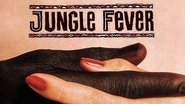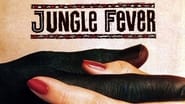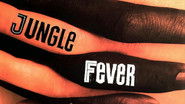p-stepien
Flipper Purify (Wesley Snipes) is a black architect with growing recognition, aiming at becoming partner at his current firm. Married with child his wife Drew (Lonette McKee) and daughter Vera (Veronica Webb) are seemingly the apple of his eye. When given an assisrant of Italian roots, Angie Tucci (Annabella Sciorra), Flipper initially objects on racial grounds, opting for a black-skinned subordinate. These reservations soon come to pass, when working nights together they soon uncover a growing fascination with each other, despite their differing skin colours. This soon turns into a romance, which crosses racial boundaries, causing a stir in both neighbourhoods and making them outcasts from their families...American film in general still has racial issues. Seeing a mixed couple on screen is a strangely rare occurrence, despite an increase in Afroamerican actors on the front-line. Even when employed the norm is having non-mixed couples, as if to avoid inciting unpopular furore among both sides of the divide. The exceptions to the norm are few and far between, surprisingly most often introduced by non-American directors. Even less widespread is such mixed couples not being the core of the story told - a notable exception is "Things We Lost In the Fire" by Dane Susanne Bier, where Halle Berry and David Duchovny create a loving couple with race issues never even implied.This speaks volume why "Jungle Fever" and the issues touched remain poignantly important till this day - the concept of mixed race pairs is so innerly counter-cultural to the American society at large, even more so than in Europe or light years behind the formerly racial South Africa. Spike Lee therefore located a subject mine for a classic movie, which would stay in memory for its breakthrough content. However Spike Lee wouldn't be himself, if he hadn't resorted to some tricks of trade, flashing audiences with subplots, which do nothing but distort the core theme (Flipper's flailing career or an absolutely detrimental story about his brother the narcomaniac). Meanwhile the racial issues themselves get dragged down with overly preachy monologues or dialogues, finally delivering little in terms of a satisfying conclusion. Seemingly afraid of going the mile Spike Lee finally pulls up and offers a screeching happy ending, but somewhere within this feverish mixed racial love the context becomes diluted. Already permeating with an unmistakable style, patchy story lines and venturing camera shots, Spike Lee's trademarks came to fruition, but unfortunately with a movie being a far cry from "Do the Right Thing" or "The 25th Hour", proving to be a director renowned for a very uneven film career.
asweetmargarita
The old story of married man meets single woman at work, the two are attracted to each other and become involved in an affair. But the twist on this "typical tale" that gives it the timeless relevance is the couple is interracial. Not only are they interracial, they are from very different backgrounds and very different needs which compound the relationship they have fallen into. Talk about "It's Complicated"!Then Spike Lee lets the story take place in a very racially divided area of a hugely ethnically diverse internationally known city. Weaving into this story addiction issues that pit families against one another and cause communities to crumble. Watching this movie one can easily get caught up in the race against race issue and this be the take away. Yet for me the take away was how does one handle relationships once you peel back the taboo of interracial dating. Two people have a decision to make that is not about skin color. It is the classic story of how does one take responsibility for allowing a spur of the moment impulse to get out of control.
ElMaruecan82
Spike Lee's "Jungle Fever" is an eye-opening introspection into the limits of that so-called melting pot sold by America as the epitome of tolerance and universalism... yet contradicted by the statistics and all the racial tension that prevailed in the early 90's. As a social commentary, the movie raises many important issues about interracial relationships in a less politically lauded tone than the iconic "Do The Right Thing", which is a wise choice for a movie mostly centered on human relationships.Through Stevie Wonder's titular song, "Jungle Fever" refers to the diagnosis of that strange mutual attraction between two persons from different races. The term strongly implies the idea of a relationship against Nature's law, if not a sickness, a deviation. And the central couple to deviate is Flipper, an ambitious architect, and Angie, his new secretary. He's Black, she's Italian. He lives in Harlem, she's from Benston Hurst, he's married with one daughter, she has three men, and two too many: her father (Frank Vincent), and her two brothers. Angie's doom is that she's young and single enough to be the overprotected sister, but mature enough to take care of the house. Angie dates Paulie, a shy and affable storekeeper (John Turturro) in a relationship that doesn't really ring true. Whatever is obviously lacking, Angie would find it in Flipper.Spike Lee's direction patiently depicts the growing attraction between Flipper and Angie. Interestingly, the first door to a growing intimacy is opened when they break the taboo of races and talk about it in the most casual way. And after that, we stop looking at the difference of skins, and pay more attention to the contents of their hearts. So they have sex, and no sex scene is sugarcoated in Spike Lee's film, not overdone either, but what is Spike Lee's point? To insist that it's only sexual like in adultery, or because of the 'Jungle Fever'? Whatever theory we believe in, the relationship would be wrong, but Lee cares less about pleasing us ethically than inviting us to examine the aftermath of that pivotal night where a Black man and a Italian (Caucasian) woman
did it. And the way the relationship evolves could be perceived as bad writing on the surface, while it's only extremely well-written 'bad reactions'. For one thing, the adultery is less condemned than its interracial nature. Flipper's wife, Drew (Lonette McKee) is from a mixed couple, and always feared to be only one step in Flipper's attraction process toward light skinned women, until he'd finally go with a plain Caucasian. Flipper's denial might be sincere but then why did he ask his bosses to only hire African American women? Did he know he would automatically fall in love with a Caucasian? The ambiguity remains and is displayed from a different perspective during a dinner with Flipper's parents played by the veteran actors Ossie Davis, as a fanatic preacher, and Ruby Dee, a loving mother and devoted wife. Flipper's father reminds Angie that white women always sensed an exciting mix of fear and fascination toward Black men and this is what ultimately tarnished the purity of the race, by providing so many mixed ethnicities. While succeeding on the field of disturbing realism, this scene allows us to understand Flipper's background and the amount of pressure he and Angie would endure, Angie, almost beaten to death by her 'dishonored' father, is then coldly compared to a whore. The couple wouldn't survive this last display of hatred and rejection, and in a very thought-provoking approach from Spike Lee, Flipper breaks up with Angie with a very calculated arrogance by pretending it has never been love. In a way, he joined the cause of those who pretend it's all about black men seeing that white is right women-wise, and white girls seeing blacks as sexual supermen, Jungle Fever
again. Flipper uses an obvious carapace to hide his own weaknesses. In many intimate scenes, he's the one lying beneath the shadow, while Angie's face shines under the window's light. She's genuinely in love with him while Flipper opts for a more convenient pragmatism. Again, no one is right or wrong, Flipper has many responsibilities and Angie's simply in need of a disinterested love, she's the victim of this relationship, as the one who lost the most, her 'honor', her boyfriend, and the man for which she took the risk to lose everything. The counterpoint of this failed relationship is Paulie's tender and more optimistic romance. Paulie who also grew up with an authoritarian fatherly figure (Anthonny Quinn) and endures the racist pressure of his entourage, but finally decides to date Ordyl, the woman who's always so nice to her, regardless of any skin consideration. But Flipper and Angie's relationship is less the core than the starting point of the analytic journey into the myths that surround sex, part-pride, part-doom, total pressure, marked by a great deal of hypocrisy and suspicion, due to the weight of history. Here comes the most poignant subplot involving the crack addiction of Flipper's brother, Gator, Samuel L. Jackson in an Oscar worthy performance. Gator's descent into self-destruction is the emotional pillar of the film allowing us to put Flipper's romance into perspective. There's more to worry about for the Black community, which in quest of its identity is torn between two unacceptable realities: degradation or obedience to the white man rules. Is 'Jungle Fever' the first step of that assimilation? The ending is a father's cry of despair for never seeing his daughter falling in that trap anyway. "Jungle Fever" works less as a romance than as realistic depiction of the racial myths poisoning the society. Through many secondary characters with an impressive level of depth and believability, we realize that most of them defines themselves through their ethnicity
as pure survival instinct. When the world is a jungle, it can only inspire self-preservation.
blandie-1
I'm not sure why Spike Lee made this train wreck of a movie and conned poor Stevie Wonder into eternally pairing his beautiful music with this theatrical mess. I also resent the way he uses profanity as a part of the normal prose of professional Blacks. The abuse of his hold on ethnic movie goers is a shame. Scenes which seem to be contrived out the blue and have nothing to do with the theme or sub themes, play as if some college kid wrote this. I especially detest the ludicrous scene where the two leads are playfully sparring for no reason at all and the cops come and rough up Snipes. The overacting of the leads makes one feel as if Spike has no respect for his viewers or he has no clue what a movie is all about. The final scene appears to be thrown in to justify the use of a sledge hammer to tack a point in. This movie also supports the myth that all people of culture use the F-word in casual conversation. I am hoping he will realize that the rest of his movies are in the same pool as this one where he is not growing as a film maker. I think his union with Scorcesee in Clockers was a wise move. He should stick to making documentaries like the Four Little Colored Girls. Shock movies do not an Oscar make.
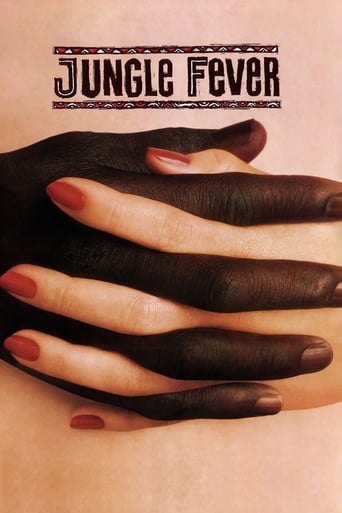
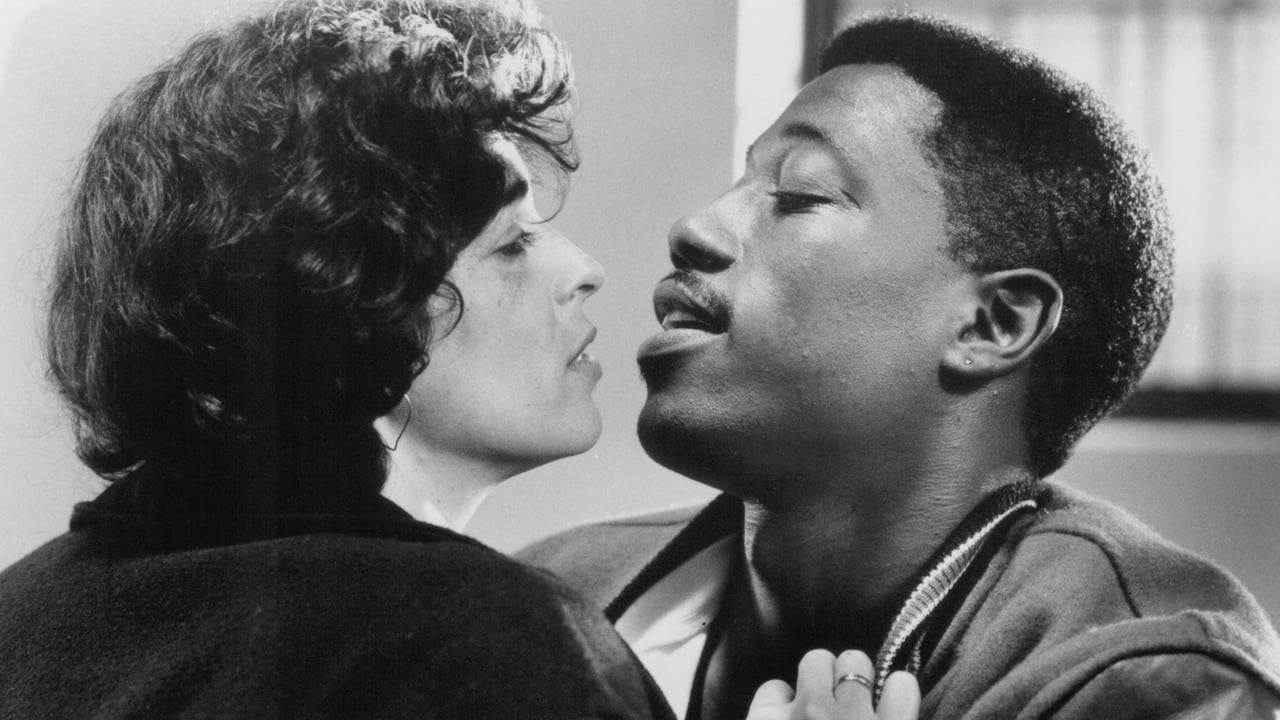
 AD
AD




